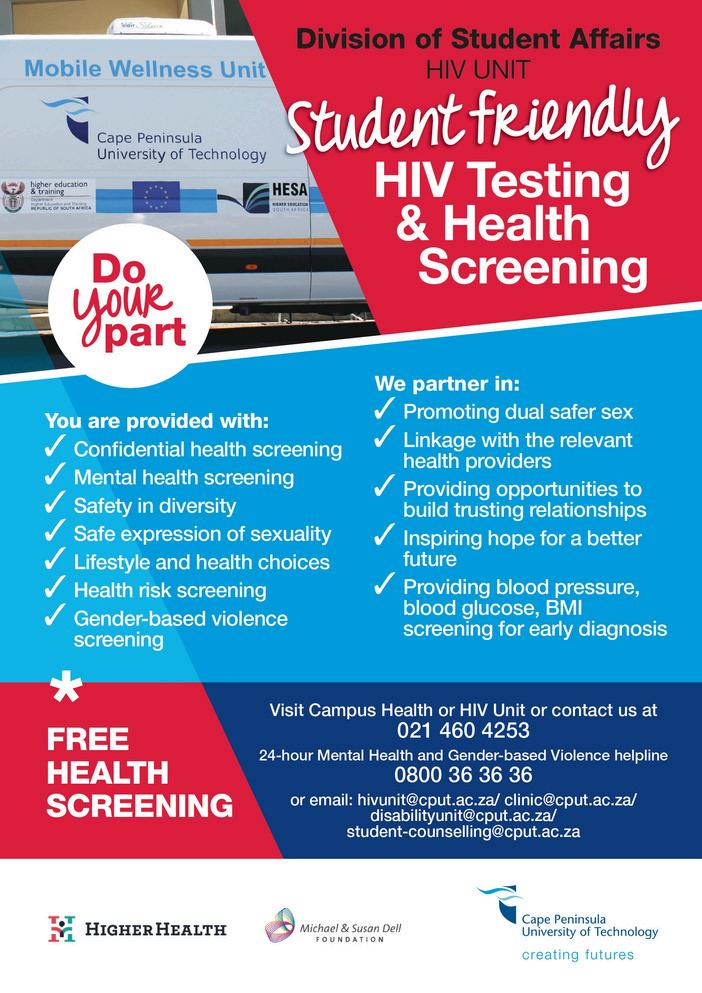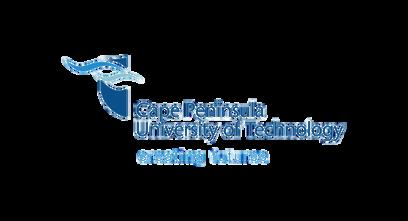












As a first year student, you might have encountered difficulty to adjust to student life beyond high school. You might have learned that much depend on how much you are willing to put in your studies While you are all warmed up for this year, focus on the importance of taking care of your physical, mental and social health.
Let us listen to how our bodies communicate with us and respond accordingly. In other words, whether we are exhausted, thirsty, hungry, cold, or warm, it is important to respond to those needs
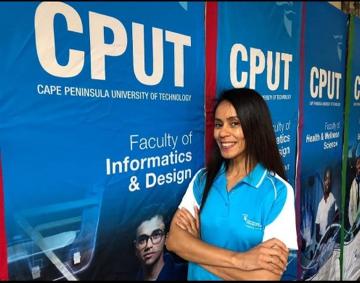
When we feel overwhelmed by academic pressures, respond, and seek support that is available right at our doorstep on campus My encouragement for you is to use every development opportunity that you get here at the institution.
Determine what values are necessary to help you grow in your respective courses and in many cases careers as graduates Life is a gift, life is precious Seize every moment, every day. Make use of our wide range of health care and support services.


Enjoy this edition of our newsletter. Hope to see you joining one of our vibrant programs such as the peer education program. I wish you well for the rest of the year!
Take care
Wishing you a joyful and restful recess Take this time to recharge and spend quality moments with your loved ones.
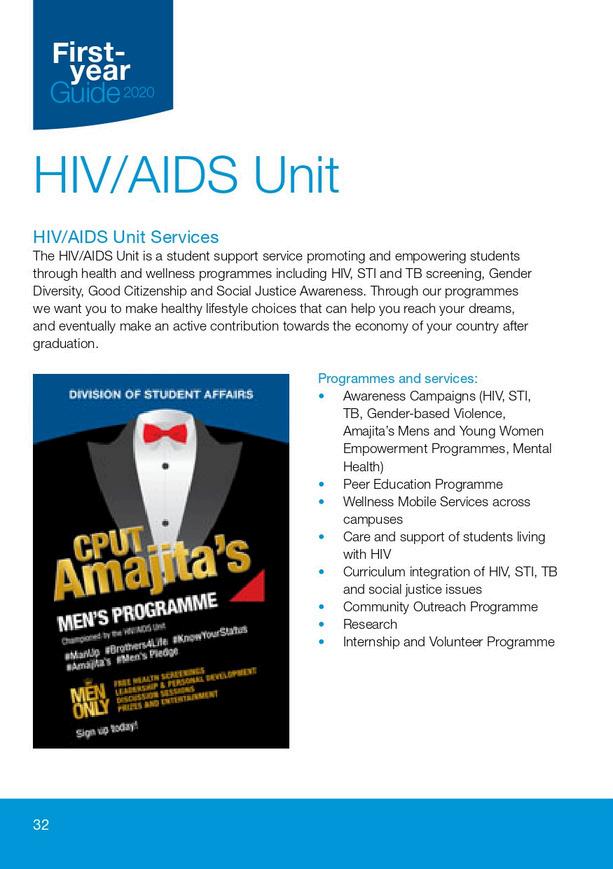
different different
and



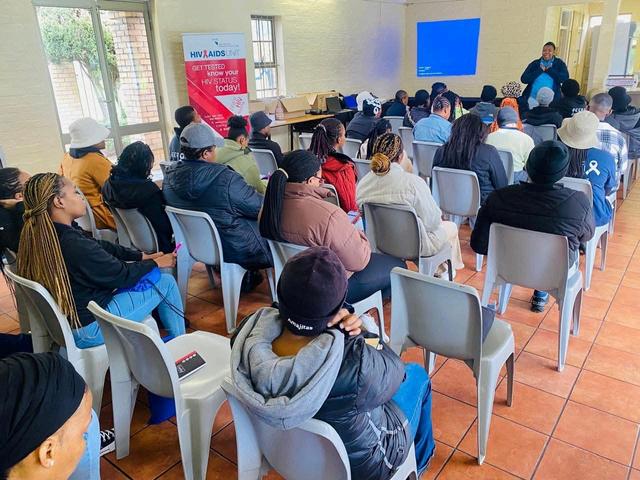
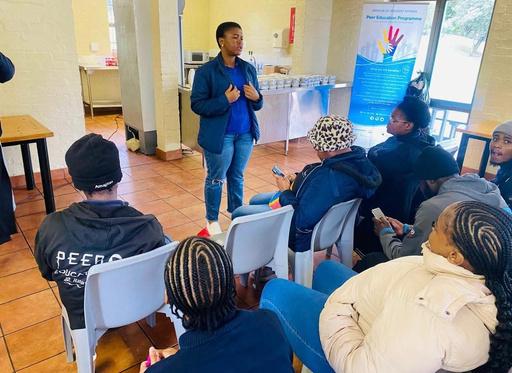

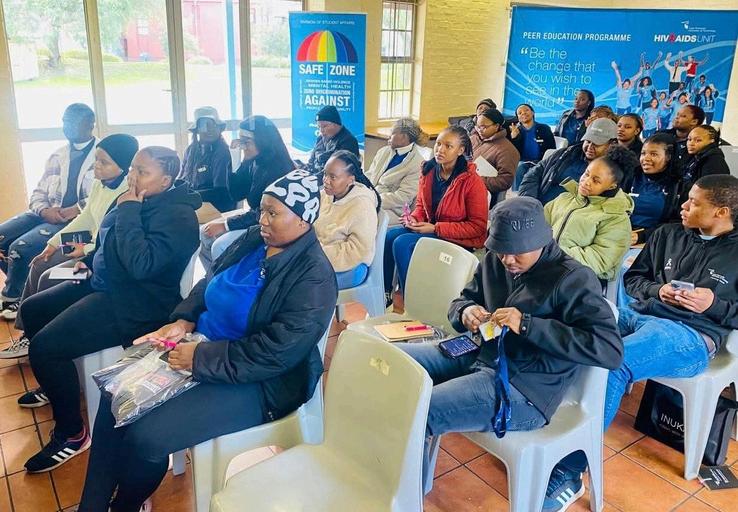

BYTANDILENDOYISILE
Every year, Peer Educators undergo training in the beginning of each year, followed by a refresher session in July to prepare them for the second semester and upcoming awards!
On Saturday, July 20th, 2024 the peer educators gathered for a refresher training at the Pool House at Bellville campus. This training, organized by the HIV/AIDS Unit, provided a much-needed opportunity for them to reflect on their efforts during the first semester and plan for a stronger second semester.
The day began with an introduction by Peer Education Officer, Nonhlanhla Ndabeni She went over the agenda and reminded the peer educators of their responsibilities. She also gave feedback on the first semester and highlighted areas where she wanted to see improvement
The next speaker was Lusanda Naki, the HIV/AIDS Unit Counselor She praised the peer educators for their work during the First Things First campaign but urged them to be more present during residence visits to encourage students to get tested for HIV. She also emphasized that students often relate better to their peers, which makes the peer educators' involvement crucial.
NACOSA representatives, Ntsiki and Unathi, discussed their services and requested the help of the peer educators in mobilizing students for residence discussions Viwe Hlabahlaba from the campus health clinic, also shared ways the peer educators could assist with clinic events
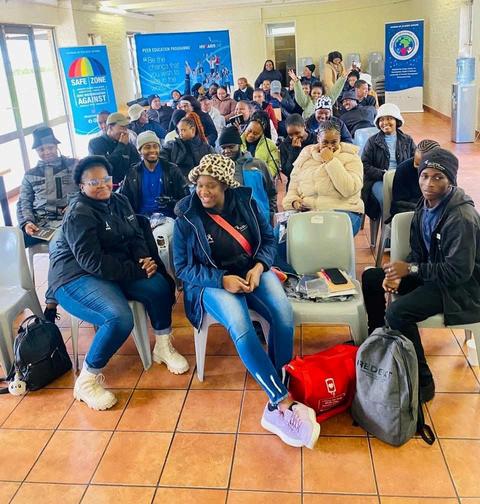
The last speaker was Tandile Ndoyisile, the PR intern of the HIV/AIDS Unit who spoke about the importance of social media in promoting the HIV/AIDS Unit and asked the peer educators to get involved in content creation and engagement.
Ndabeni then opened the floor for the peer educators to share any challenges they faced. Issues like teamwork and communication were brought up Ndabeni then stressed how important it is for the peer educators to work together and communicate well in order to succeed.
To wrap up, Ndabeni highlighted key focus areas for the second semester, such as more discussions on Gender-Based Violence and identified residences that need more attention She ended the training by reminding everyone of the upcoming peer educators’ awards, leaving the peer educators motivated and excited for the semester ahead.
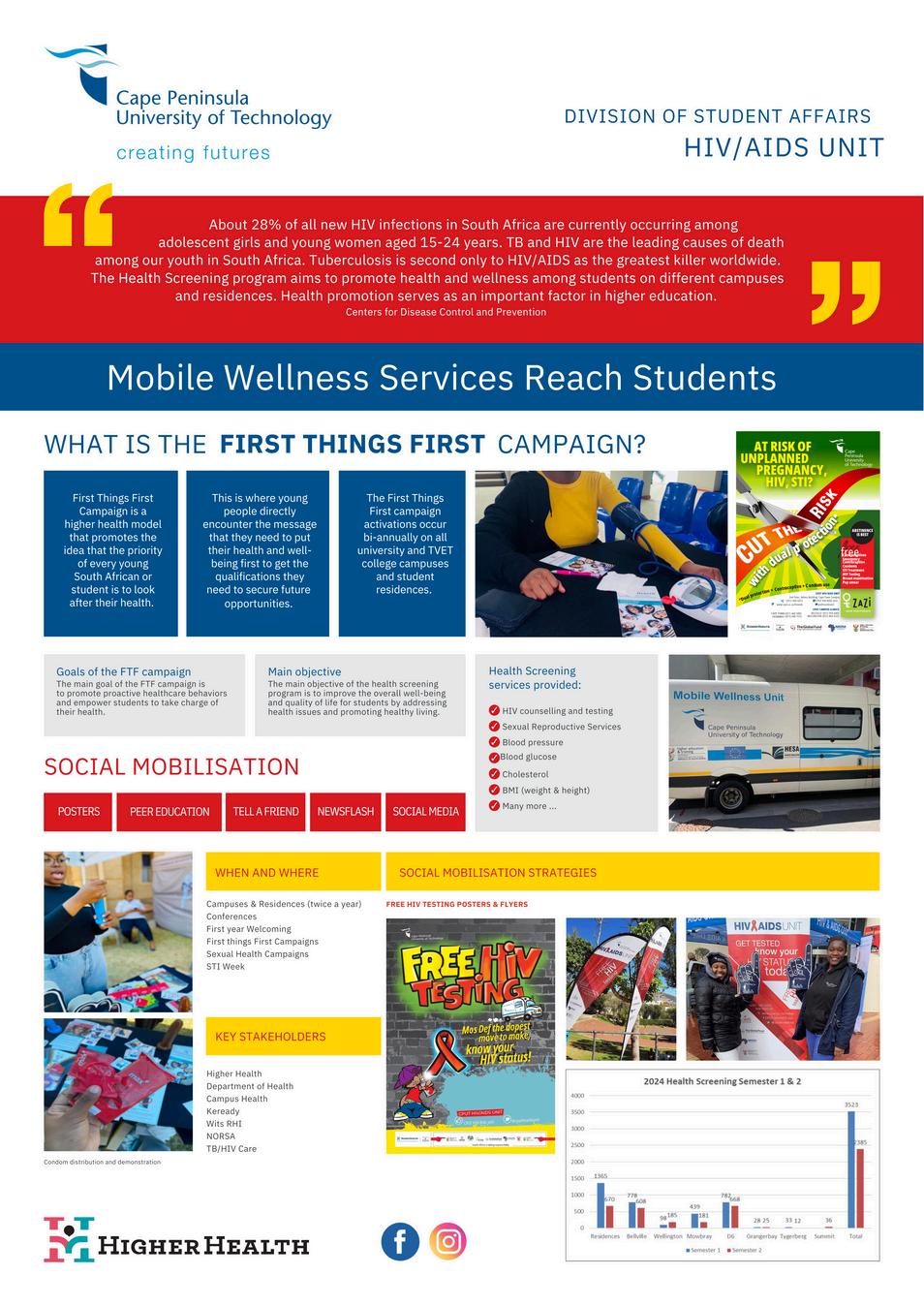

BYTANDILENDOYISILE
The HIV/AIDS Unit, together with KeReady, NORSA, WITS Reproductive Health Institute (RHI), and TB HIV Care, brought back the "First Things First" (FTF) campaign for the second semester, starting on July 29 till 17 September 2024.
This campaign, which is part of Higher Health’s initiatives, continued to focus on helping students stay healthy by offering essential health services across CPUT campuses.
The services provided in this campaign include HIV screening (getting to know their HIV status), blood pressure screening, blood glucose screening, sexually transmitted infections screening and many more. KeReady provided COVID-19 and Flu vaccines across campuses Contraceptives and Pre-exposure Prophylaxis (PrEP) services were also included in this campaign.
After the success of the first semester, the teams visited all CPUT campuses and some residences once again for the second semester
Despite some challenges , the campaign carried on with a strong commitment to student health The teams continued to offer services like HIV testing, blood pressure checks, blood glucose testing, and screening for sexually transmitted infections (STIs). Contraceptive and Preexposure Prophylaxis (PrEP) services were also included in this campaign. Along with these health services, they also educated students on how to stay healthy and prevent risks This helped create a lasting message about the importance of taking care of one’s health
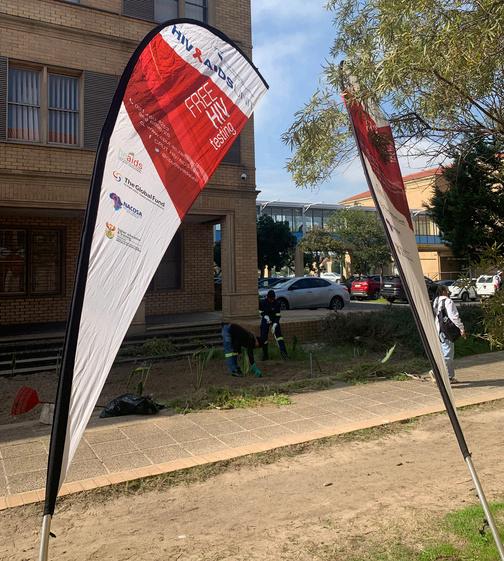


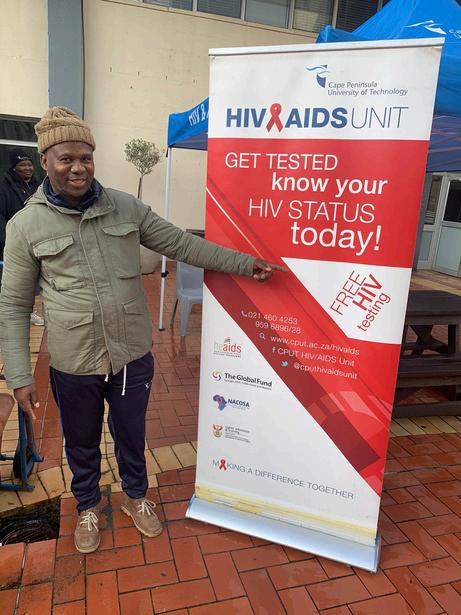
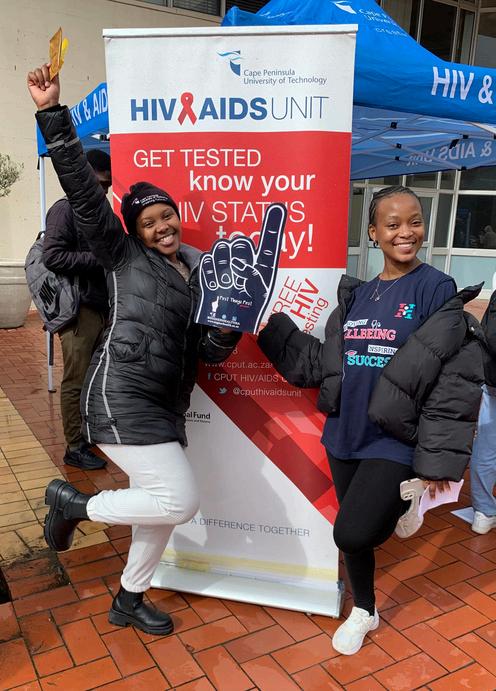


A big thank you to the HIV/AIDS Unit team
Thank you KeReady, NACOSA, Right-to-Care, TB HIV Care, Wits RHI, City of Cape Town (Tygerberg) and WCDOH for your unwavering dedication to the First Things First campaign. Your efforts in testing and supporting students have made a real impact on campus health. We also extend our heartfelt thanks to the peer educators for their amazing work in promoting the campaign and assisting throughout

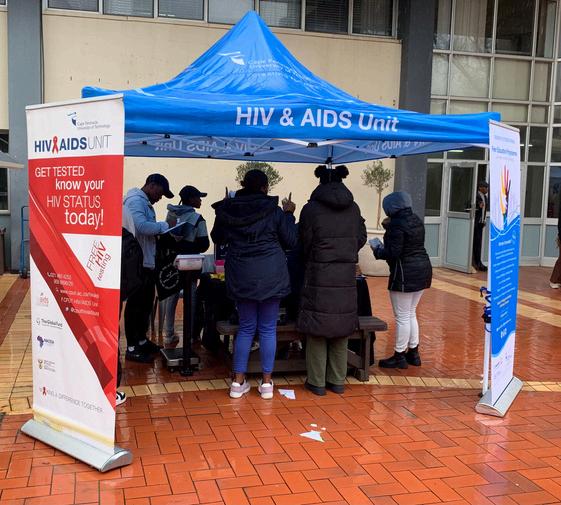

The First Things First Campaign is back for the first semester of 2025!
Get ready because it could be coming to your residence soon. Keep an eye on our social media pages for updates, dates, and locations. Don’t miss the chance to engage, learn, and take charge of your health Be part of this exciting wellness drive!

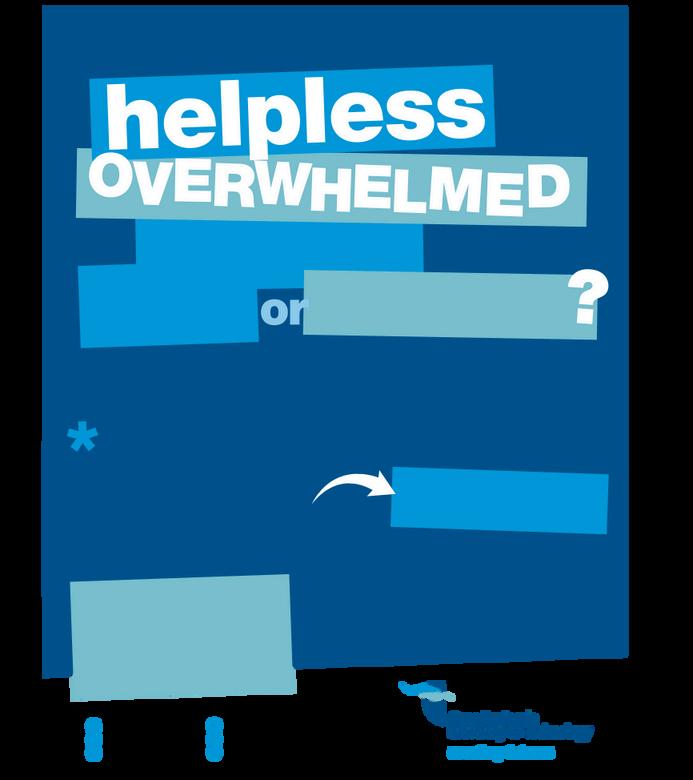

BY ATHI SAMTE

The CPUT HIV/AIDS Unit held its yearly Peer Education Awards at the Prestigious Granger Bay Hotel School on Thursday, September 19, 2024
Peer educators and the corresponding staff members dressed elegantly as they celebrated a year filled with wonderful traditional wear themes, rewarding all the peer educators for their devotion, contributions, and remarkable commitment.
Our amazing interns, Tandile Ndoyisile, Athi Samte from the HIV/AIDS Unit, and Anathi Mabumbulu from student counselling, hosted the event and did their utmost to make sure everyone was comfortable and had a fantastic time.
Adwell Mahlangu, one of our very own peer educators, gave us a fantastic performance that had everyone singing and dancing around the stage
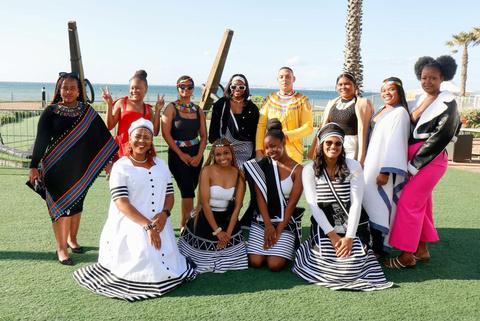
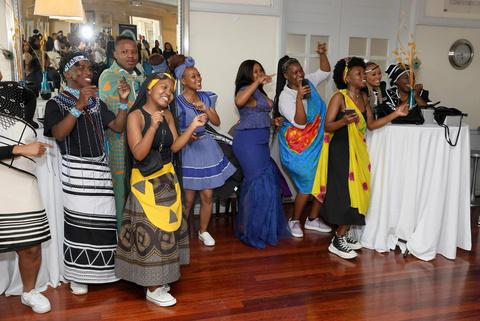

The Peer Education event aimed to recognize the diligence and commitment of the peer educators. The top peer educators received prizes presented by the HIV/AIDS unit Head of Department, Dr Melanie Swanson along with Nonhlanhla Ndabeni our Peer Education officer. The winners are as follows:
JUNIOR PEER EDUCATOR OF THE YEAR
Winner: Tshepo Ngwane
1st Runner Up: Ntlonipho Zitha
2nd Runner Up: Adwell Mahlangu
SENIOR PEER EDUCATOR OF THE YEAR
Winner: Anelisiwe Nkalo

1st Runner Up: Euginia Zimasa Dumbisa
2nd Runner Up: Babalwa Mqakelana
MOST DISCUSSION GROUPS
Winner: Calvin Tumelo Kwinika
Winner: Kefentse Junior Seabutla
1st Runner Up: Karabo Malatji
1st Runner Up: Xoliswa Lee-Ann Mngadi
2nd Runner Up: Tshepo Ngwane
2nd Runner Up:Tokologo Hlabirwa Mashabela
CONDOM DISTRIBUTOR OF THE YEAR
Winner: Reitumetse Moholo
1st Runner Up: Nokuthula Bianca Masangane
2nd Runner Up: Calvin Tumelo Kwinika
SOCIAL MEDIA INFLUENCER OF THE YEAR
Winner: Lunga Mehlo
1st Runner Up: Tokologo Hlabirwa Mashabela
2nd Runner Up: Mosa Senosha
CAMPUS LEADER OF THE YEAR
Winner: Calvin Tumelo Kwinika
1st Runner Up: Karabo Malatji
2nd Runner Up: Siyamthanda Mngcwangu
CAMPUS OF THE YEAR
Bellville Campus


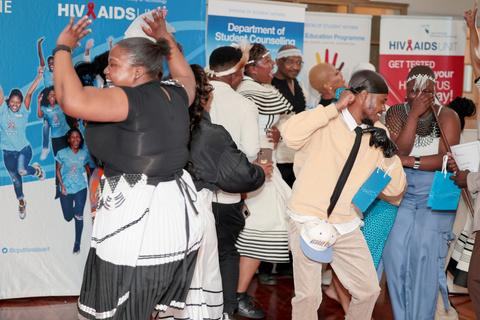
(Bellville Peer Educators rejoicing on stage after winning Campus of the Year award)
Here's what some of our Peer Educators had to say about their award-winning experience: Siyamthanda Mangcwangu, who took home the Campus Leader Award, beamed with pride, saying, "Winning this award was a moment of immense pride " Zimasa Dumbisa, a senior Peer Educator and first runner-up, was pleasantly surprised by her win "Honestly, I didn't expect it," she admitted
To our wonderful Peer educators we would like to thank you all for your commitment, hard work and dedication to the 2024 HIV/AIDS Unit programs.
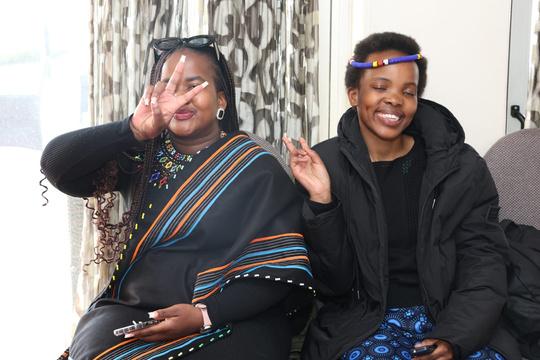
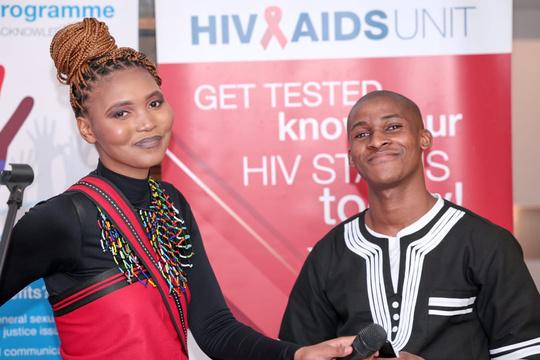

2 0 2 4 p e e r l d e r s ’ a w a r d s
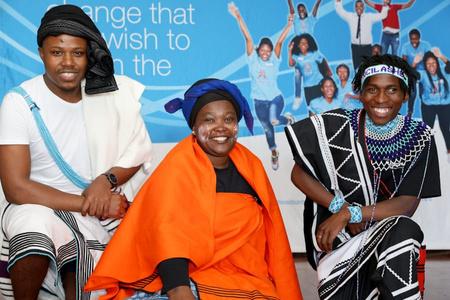
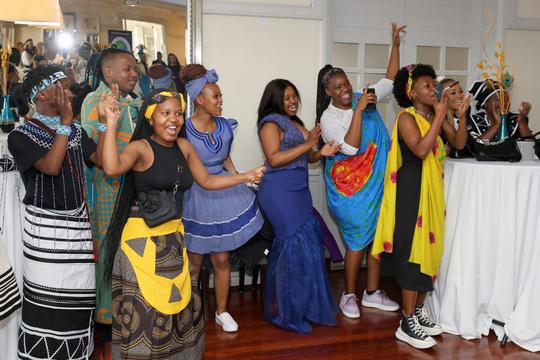


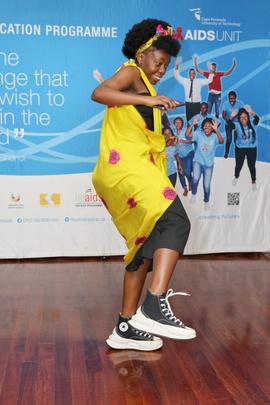
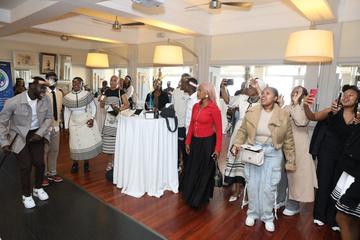

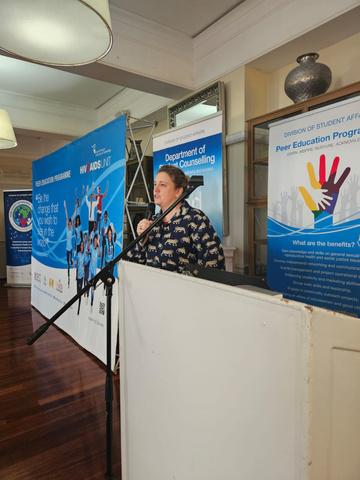

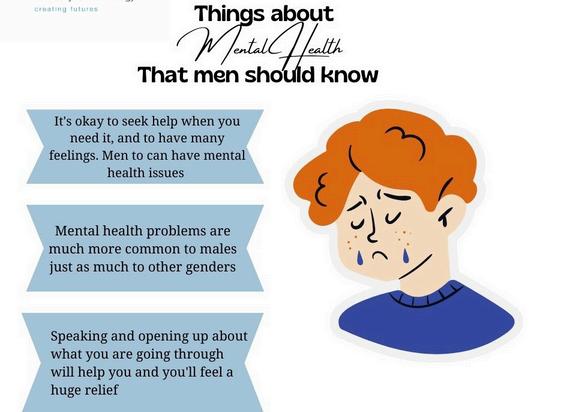




BY ATHI SAMTE
The Division of Student Affairs of Cape Peninsula University of Technology wrapped up a successful Inter-Institutional Student Wellbeing Summit in collaboration with University of Free State and Stellenbosch University. The summit happened for three days from 20th to 22nd of September 2024, which brought together students, Peer Leaders, educators, and health experts for the three-day event focused on addressing student wellness across higher education institutions. The summit featured a great exhibition and engaging discussions on the issues affecting student wellbeing
The summit was officially opened with a wonderful performance by the CPUT choir setting the tone for the day’s activities. Deputy Vice Chancellor of Operation Professor Gilingwe Mayande delivered the official welcome, followed by a message of support from Fundiswa Sotenjwa, Director of Student Support at DHET
CPUT's Dean of Students Affairs, Nonkosi Tyolwana, outlined the summit agenda, focusing on the themes of gender empowerment, mental health, and leadership. University of the Free State, introduced the context and inception of the man-and-woman programs, setting the tone for the gender-focused discussions that followed.
Men’s Summit (Auditorium): Discussions cantered on how men can lead efforts against gender-based violence (GBV) and the importance of safe spaces for men to discuss mental health, facilitated by Tumiso Mfisa and Jacob Ranyao.
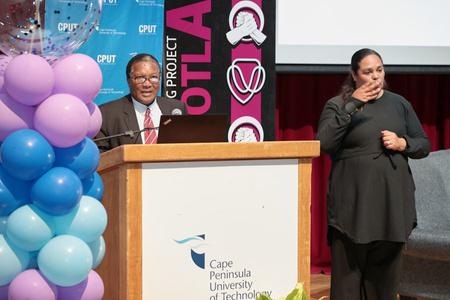

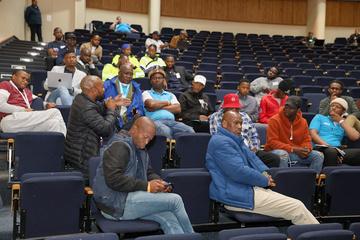


Women’s Summit (Sports Hall): Discussions led by Martie Miranda from University Of Free State encouraged women's leadership and gender inclusivity in higher education, featuring peer educators and diversity champions
Plenary Sessions Highlights
In the afternoon plenary session, Brightness Mangolothi, Director of HERS-SA, delivered a keynote on “Setting the Tone on Gender and Young Women Empowerment in Higher Education,” calling for greater efforts to empower young women in leadership roles
A highlight of the day was the launch of the CPUT EmpowHer Forum, aimed at fostering mentorship and leadership development among female students. Khatazile Shiluva Mukansi and Namhla Mayeki, both mentees of the program, shared their personal experiences of growth through the EmpowHer initiative
The day concluded with feedback from student leaders, a Men’s Pledge against GBV, and a closing address by Louisa Brits, Head of Student Counselling at CPUT.
Day 2 began with a reflection on the previous day’s discussions by student leaders from CPUT and Stellenbosch University (SU), followed by a performance from CPUT’s Department of Sports, Arts, and Culture
Breakaway Sessions
Leadership, Personal Development, and Personal Branding (Auditorium):
This session, led by Student Counseling at CPUT, focused on building leadership skills, selfawareness, and effective personal branding for students aspiring to become changemakers in their communities



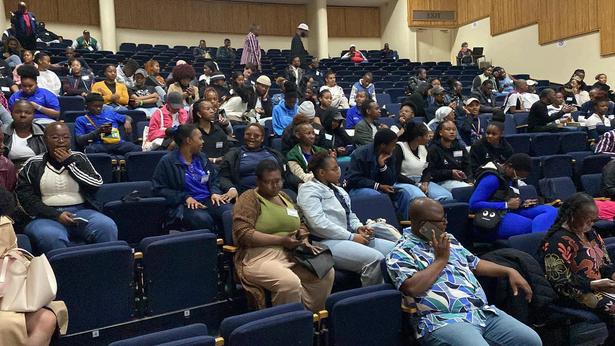



Emergency Medical Services (Sports Hall): Students received first responder training from DEMS, equipping them with the skills needed to handle medical emergencies on campus
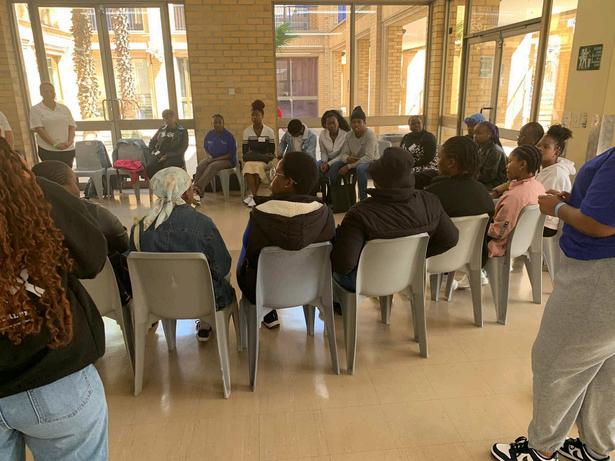
The afternoon featured a panel discussion on alcohol and substance abuse, led by Jerry Mboweni, Professor Matete Madiba, representatives from Alcoholics Anonymous, and student leaders. The panel explored the impact of substance abuse on student wellbeing and offered solutions for prevention and recovery.
In the sports hall, the EmpowHer Forum’s Terms of Reference were discussed in a roundtable setup, where mentors and mentees outlined the forum’s objectives and how it would support female students in leadership roles.
Sexual and Reproductive Health : Facilitators from TB/HIV Care engaged students in discussions on sexual and reproductive health, addressing myths and promoting safe practices.

Self-Defense and Personal Safety (Student Center): NACOSA hosted a self-defense workshop to empower students with practical skills to protect themselves in unsafe situations.




The final day of the summit took place on the Main Sports Field, focusing on leisure activities and student development through sports, arts, and culture. Students participated in a range of sport activities organized by the CPUT Department of Sports, Arts, and Culture, alongside fun recreational activities that fostered team spirit and camaraderie among attendees
The Inter-Institutional Student Wellbeing Summit created a dynamic platform for open dialogue, collaboration, and the promotion of student wellness. Through its carefully curated sessions and activities, the summit left a lasting impact on all those who attended, empowering students to take charge of their wellbeing and leadership journeys.

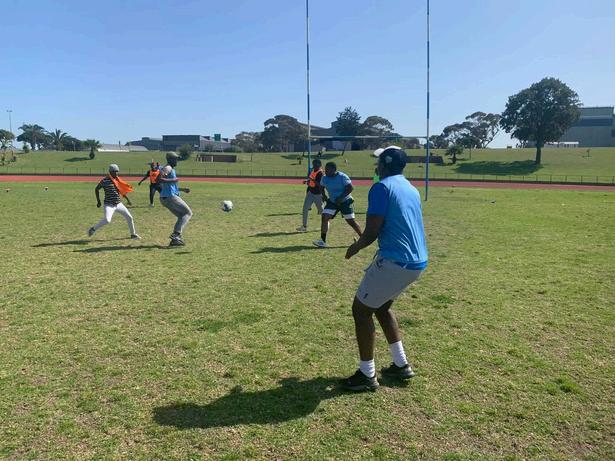

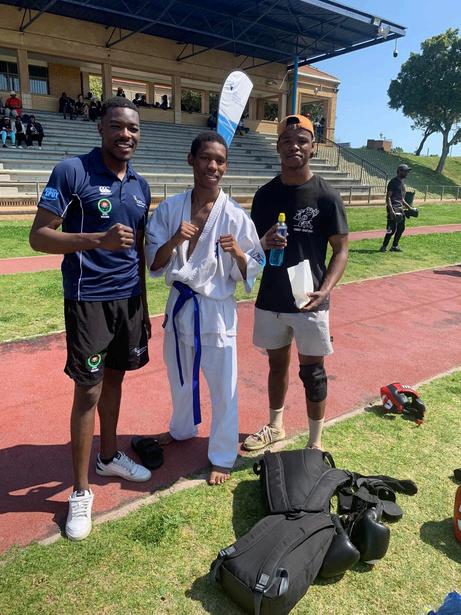


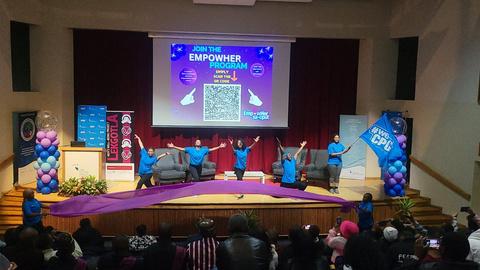





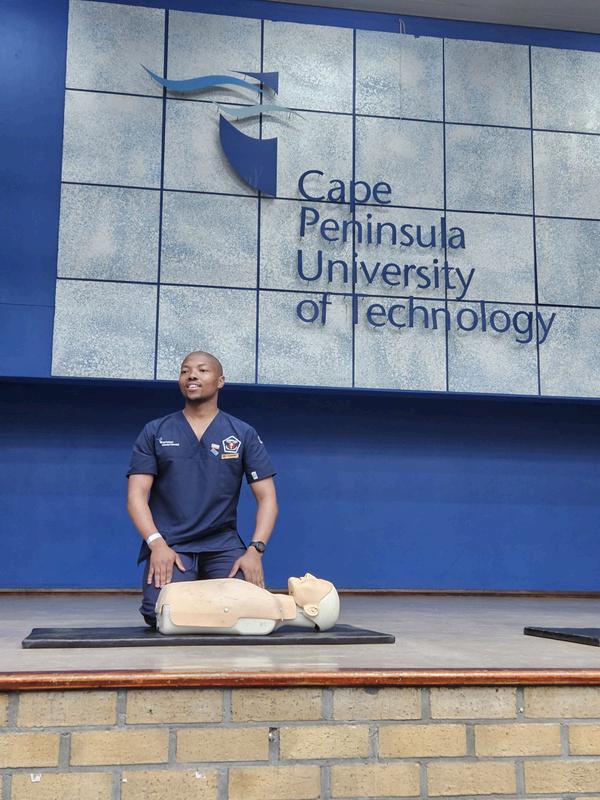


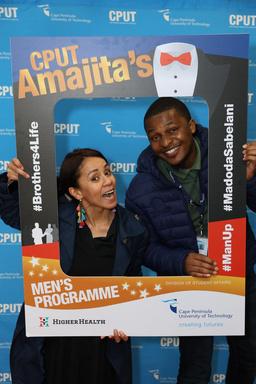




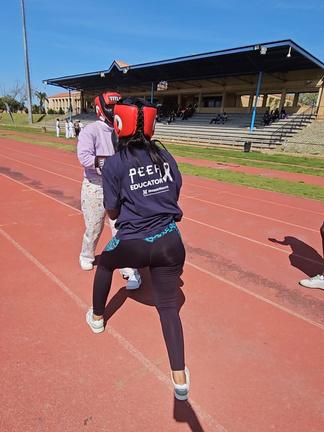


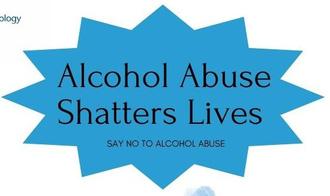






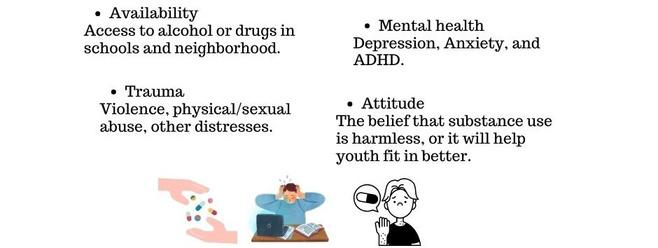

BYTANDILENDOYISILE

The Division of Student Affairs in partnership with Human Capital hosted the official meet and greet for the EmpowHer Mentorship program at Bellville campus on August 23rd, 2024.
EmpowHer is a program that is specifically aimed at empowering young women in terms of leadership, personal development and entrepreneurship at CPUT. It was officially launched during CPUT’s recent Inter-Institutional Student Wellbeing Summit. One of the key initiatives of EmpowHer in 2024 was the EmpowHer mentorship program
Invitations to join the mentorship program were sent out, and many students eagerly responded, excited to be part of this transformative experience
The official meet and greet for the mentors and mentees was hosted by Melani-Ann Hara and Melanie Swanson. This event gave the mentors and mentees the opportunity to connect, share ideas, and set the path for the future.
It was a day full of positive energy, with women empowering and learning from each other, building strong connections for the journey ahead.
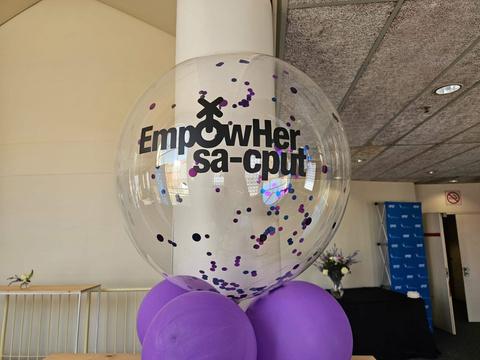
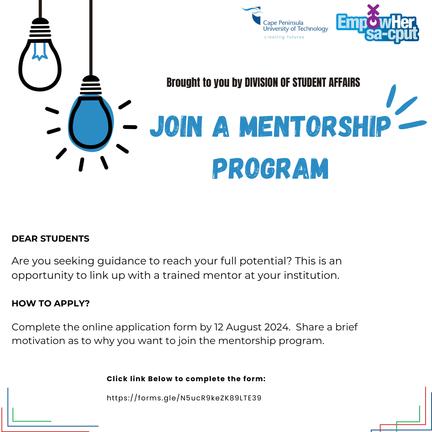





This mentorship program serves as CPUT’s Young Women’s Network, focused on transforming the lives of young women through mentoring, coaching, and training to help them achieve greater personal growth and development Through the mentorship program, EmpowHer aims to foster unity and promote gender equality, key attributes for nurturing “Smart CPUT Young Women ”
One of the mentees, Babalwa Mqakelana, reflected on her experience at the Meet & Greet and the value of having a mentor:
AttendingtheMeet&Greetwasanewexperienceforme,andIfelt abitnervous,asIhadneverhadamentorbefore However,asthe eventwenton,Iquicklyrealizedthevalueofhavingsomeonewith experiencetoguideme Mymentorsharedinvaluableinsightsthat helpedmegainclarityonmygoalsandchallenges,leavingme feelinginspiredandgrateful Thisexperiencehighlightedthe importanceofseekingwisdomfromthosewhohavewalkedthepath before,andInowunderstandhowpowerfulmentorshipcanbefor personalgrowthandbuildingconfidence Iameagertobeginthis journeyoflearningandself-development

BYTANDILENDOYISILE
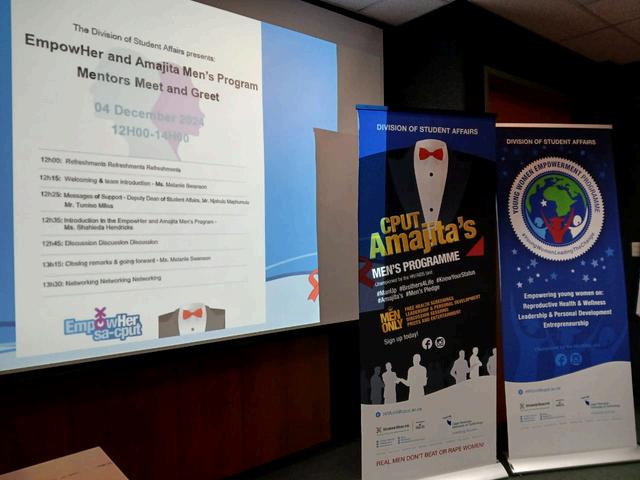
The EmpowHer & Amajita’s Mentors Meet & Greet, held in partnership with Human Capital, was a successful gathering where staff came together to discuss mentorship and share ideas on how to better support students at CPUT. This gathering also provided an opportunity to reflect on the progress of the Amajita Men’s Program and EmpowHer program and explore ways to strengthen and improve them.
Mr. Tumiso Mfisa first introduced the Amajita Men’s Program, reflecting on its journey since its launch in 2018 He spoke about the role the program has played in supporting male students



Ms. Shahieda Hendrick followed and spoke about the EmpowHer Program, emphasizing its success in helping young women develop essential career and life skills. She also reflected on the recent EmpowHer Mentors and Mentees Meet & Greet and the launch of the EmpowHer Terms of Reference (TOR) at the InterInstitutional Wellbeing Summit, both of which marked significant milestones for the program
Additionally, she outlined plans to expand mentorship for male students to ensure they receive the guidance and support they need. Human Capital Training and Development (HC) will facilitate mentor training for male staff, and a retreat in Grayton will bring mentors together to plan future activities.
The session ended with great conversations and networking, allowing staff to connect and exchange ideas This was a step forward in building a strong mentorship culture at CPUT, ensuring both male and female students receive the guidance and support they need


O p p o r t u n i t y ! O p p o r t u n i t y !
O p p o r t u n i t y !
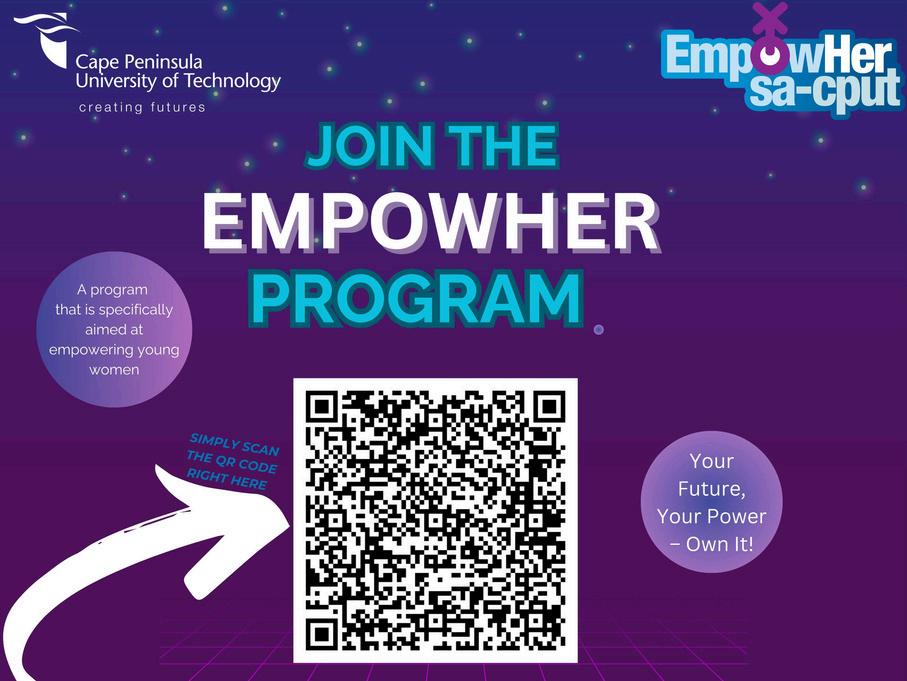
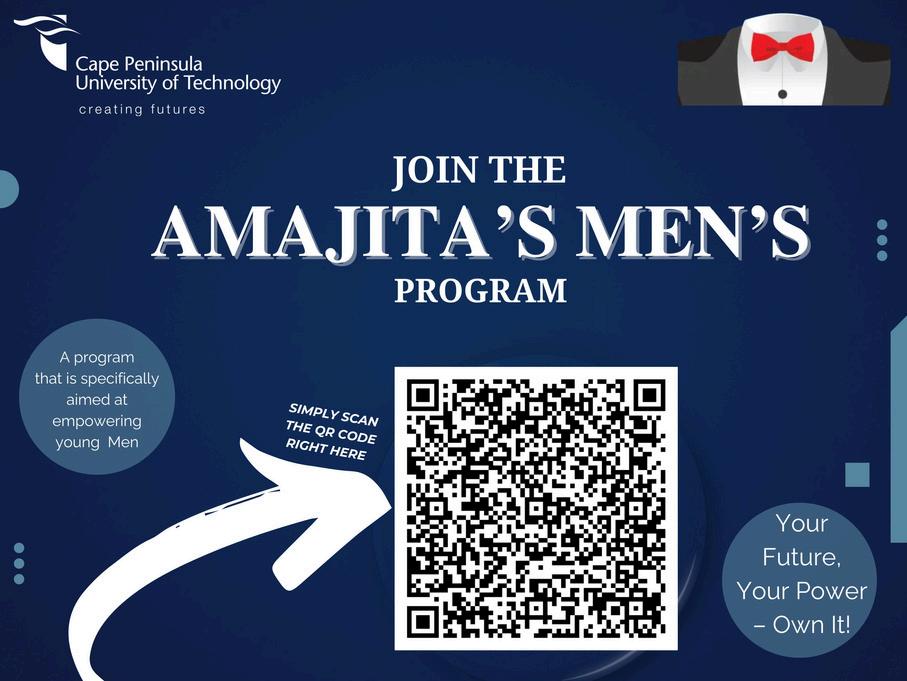
O p p o r t u n i t y ! O p p o r t u n i t y ! O p p o r t u n i t y !

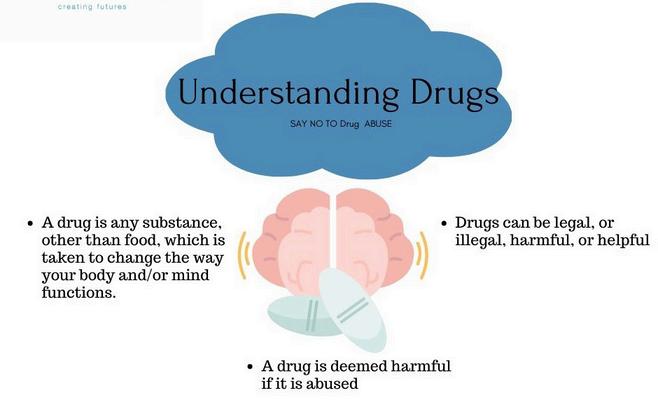

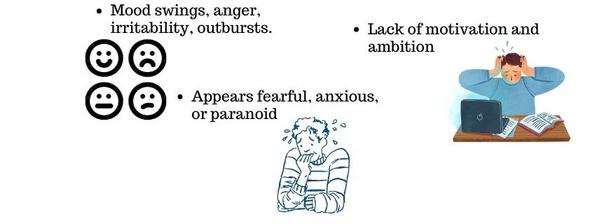

BY ATHI SAMTE
On Friday, 22 November 2024, the Cape Peninsula University of Technology (CPUT) successfully hosted the Student Health and Wellness Stakeholder Meeting at th Division of Student Affairs, the event served as a crucia services, and collaborative efforts to enhance well-bein
The meeting brought together internal stakeholders, including CPUT's HIV/AIDS Unit, Campus Health , Student counselling, Disability Unit and external stakeholders such as KeReady, NACOSA, Norsa and other NGOs focused on student wellness and public health. Each organisation was encouraged to send two representatives, ensuring a broad spectrum of insights and contributions.
The event was led by Program Director Sr Mathapelo Gabaake Deputy Dean of Student Affairs, Mr Maphumulo, officially welcomed the stakeholders , emphasizing the university's commitment to student well-being. Melanie Swanson presented an overview of the HIV/AIDS Unit's programs, highlighting the Unit's ongoing efforts to provide education, testing, and support services.
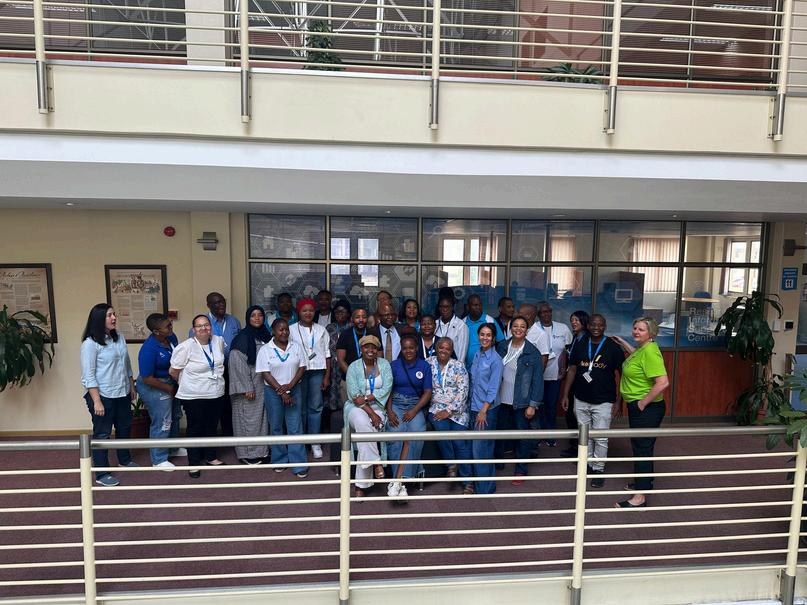
A significant moment of the event was the official handover of donations byKeReady, reinforcing the shared commitment to improving student health support
The event concluded with a handover of gifts, followed by closing remarks from Melanie Swanson, who expressed gratitude to all participants for their contributions.
CPUT extends its heartfelt gratitude to all stakeholders who supported student health and wellness throughout 2024. Your dedication, contributions, and collaboration have played a vital role in enhancing student wellbeing on campus
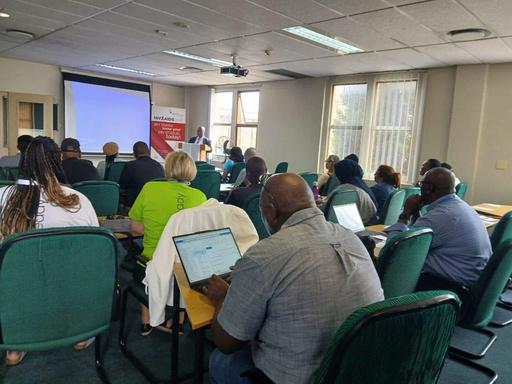



BY TANDILE NDOYISILE
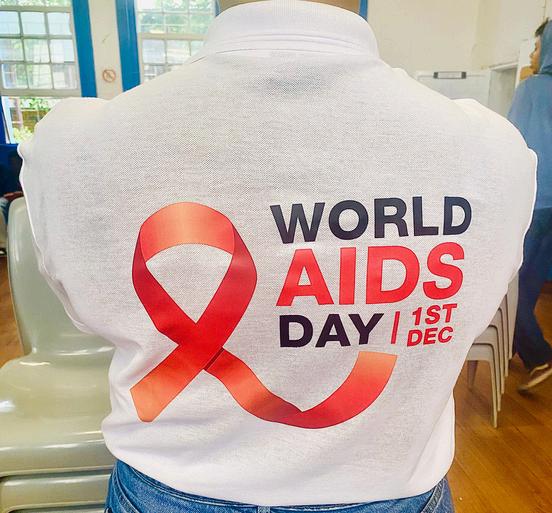
On December 3, 2024, the HIV/AIDS Unit visited The Hope Exchange to mark World AIDS Day. The goal was simple yet powerful: to spread awareness about HIV/AIDS, encourage testing, and provide health screenings to those in need.
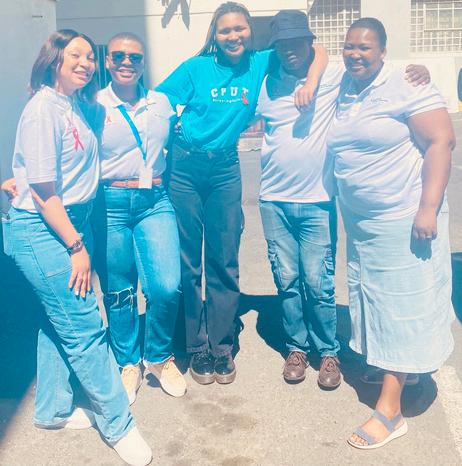
The event began with a heartfelt Red Ribbon Candle Lighting led by the HIV/AIDS Unit’s HIV Counselor, Lusanda Naki, honoring those affected by HIV/AIDS. Sr. Gabaake, the HIV/AIDS Unit professional nurse, then led an engaging discussion on the importance of knowing one’s status and getting tested. She also discussed the U=U campaign, which highlights that people living with HIV who maintain an undetectable viral load through antiretroviral therapy (ART) cannot sexually transmit the virus to their HIV-negative partners
Beyond the talks and tributes, the day was about action Free health screenings were offered, ensuring that people had access to vital health services. Attendees also had a chance to connect over refreshments, reinforcing the spirit of community and care.
The Hope Exchange continues to be a beacon of support for the homeless in Cape Town, and this event served as a reminder that health services should be accessible to all. Knowing your status is a step towards a healthier future, so get tested today!

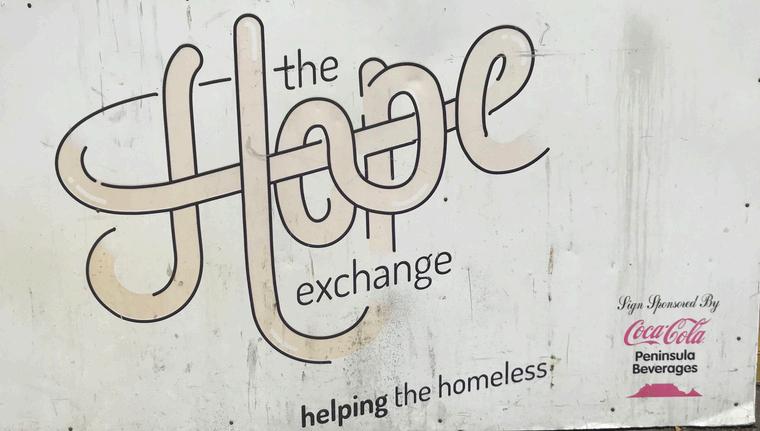

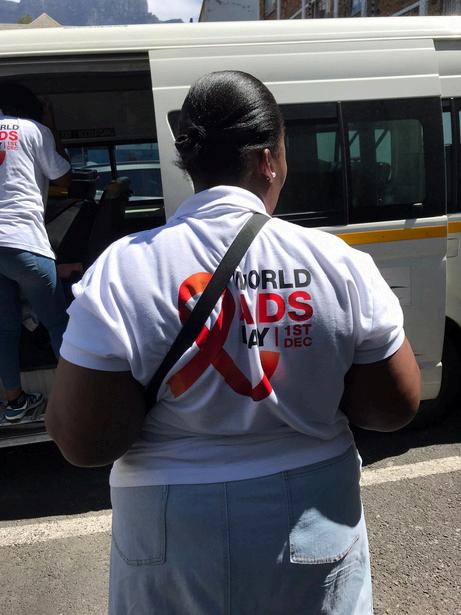
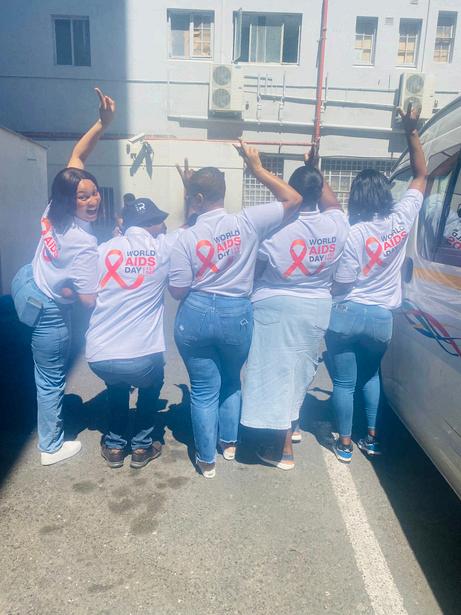
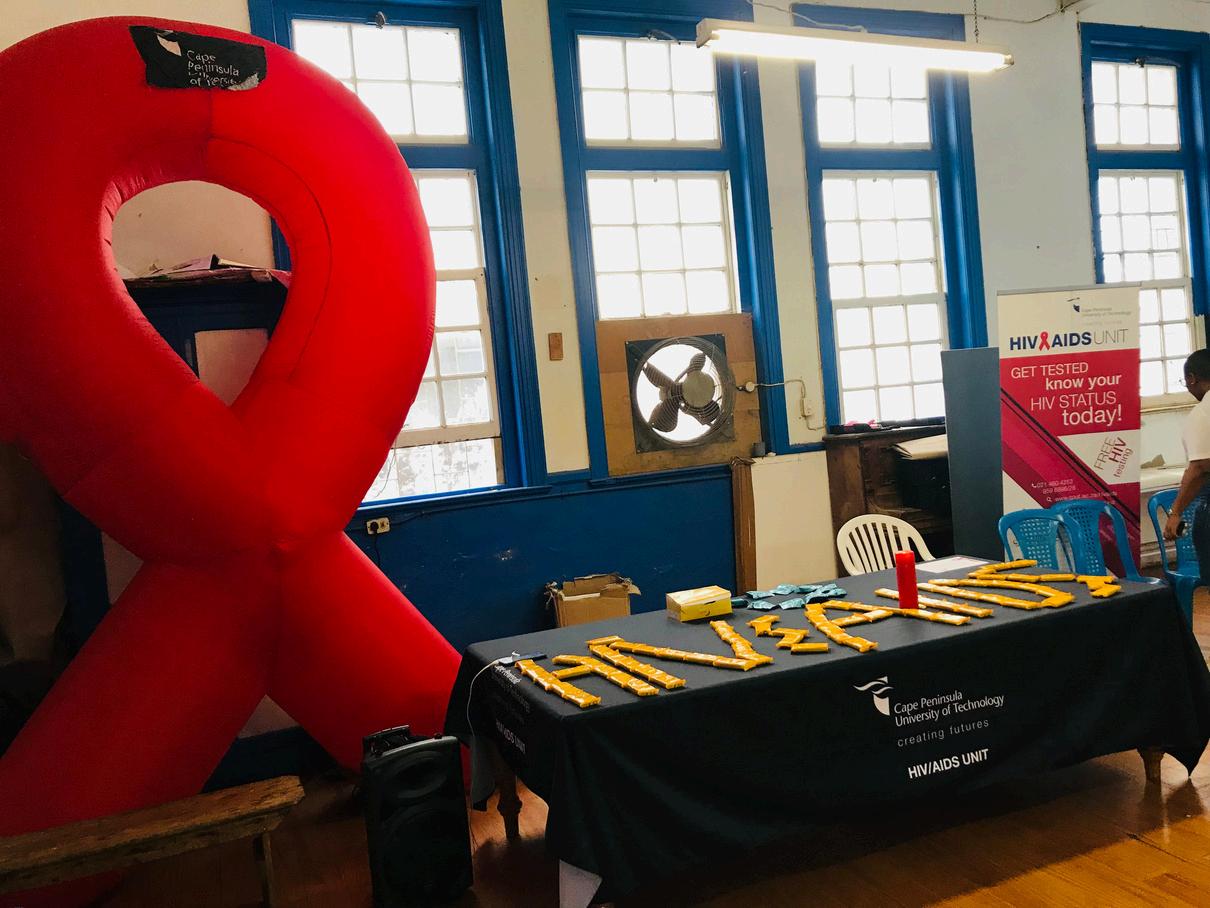

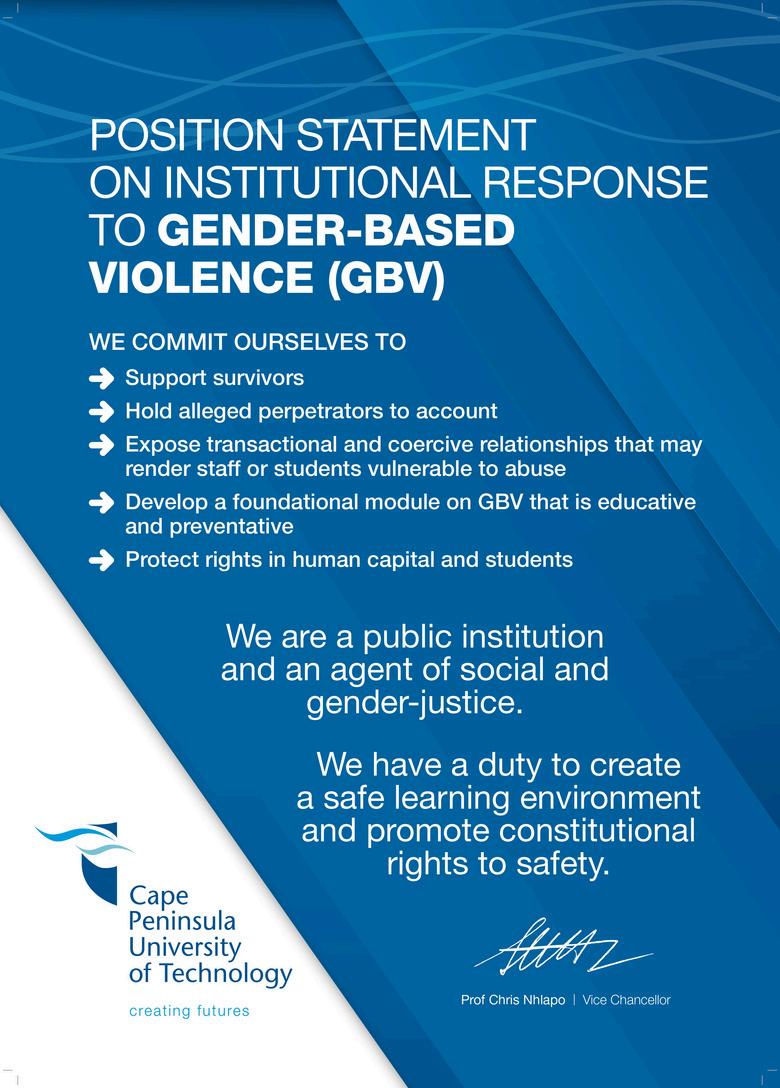

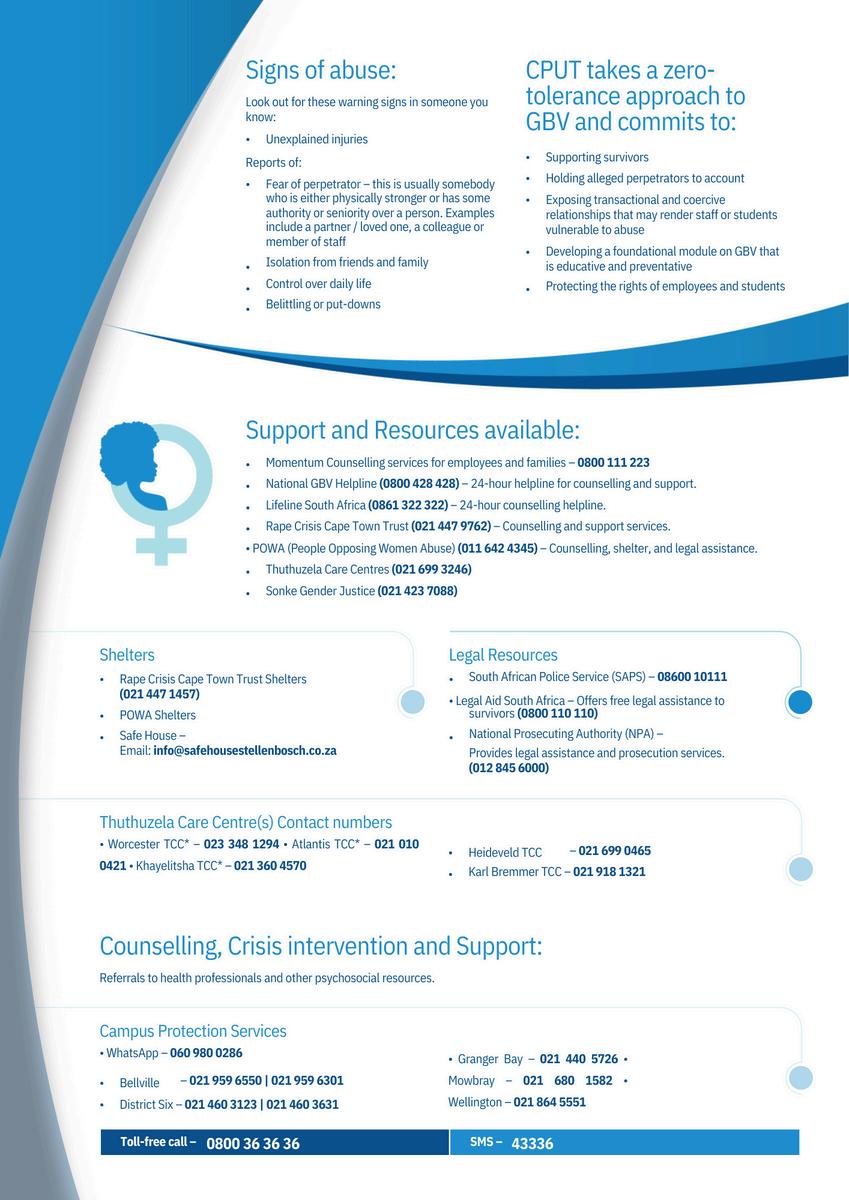

Some of the myths associated with gender-based violence (GBV) include:
Victims of GBV provoke the abuse through their inappropriate behaviour.
Most women are abused by strangers
Women are safe when they are home
GBV happens only to poor and marginalised women.
GBV is not common in industrialised countries.
Men cannot control themselves, violence is simply a part of their nature.
Regarding each of the above:
1: Blaming the victim has the potential to cause more harm to a survivor of violence.
2: Most women who experience GBV are abused by people they know; often the perpetrators are those they trust and love
3: GBV happens among people of all socioeconomic backgrounds and genders
(ObtainedfromCPUTstudentguide,Page67,Availableat:https://www cput ac za/storage/library/pdf/ebooks/student roadmap web pdf)


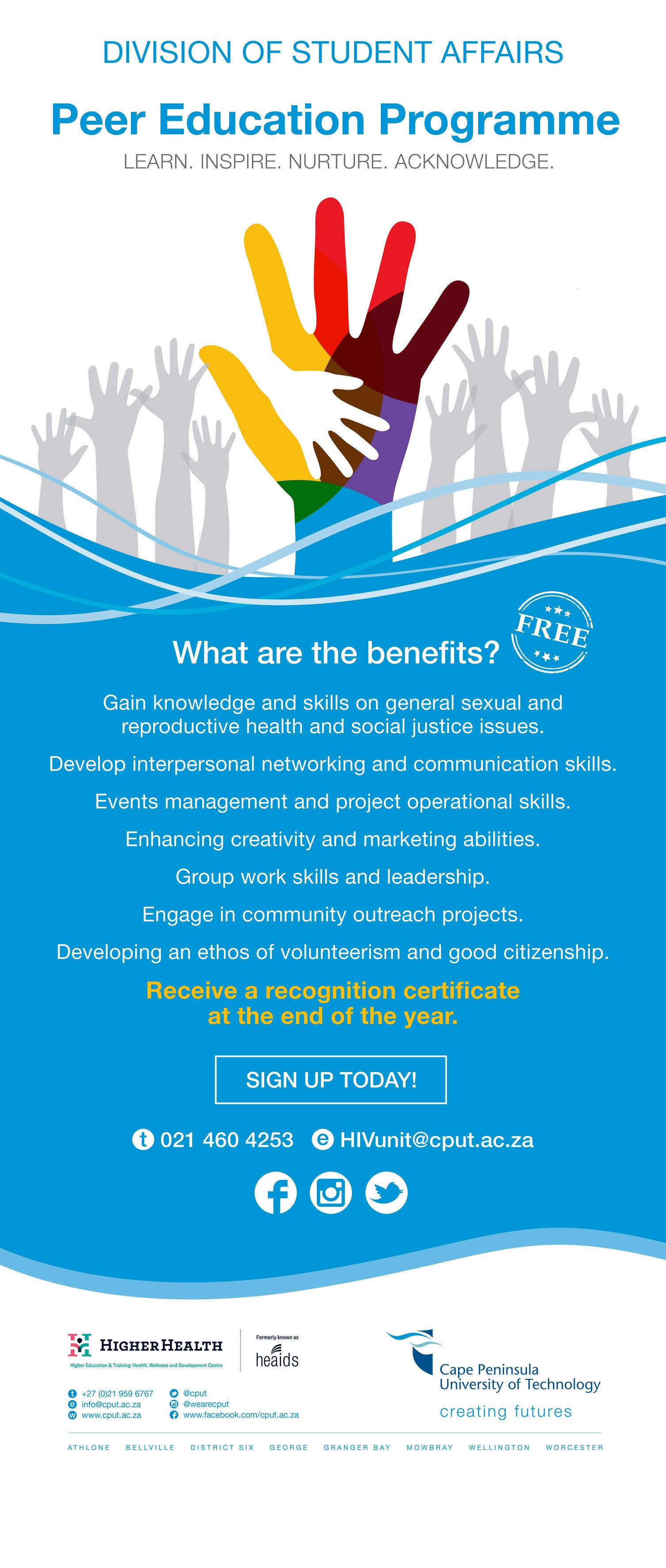


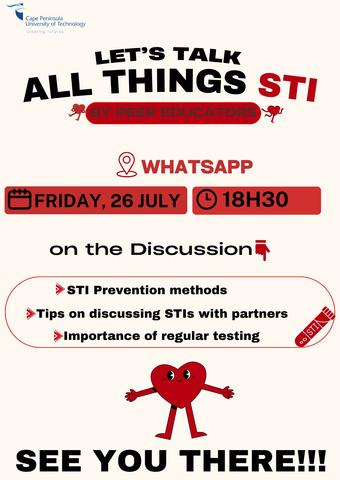
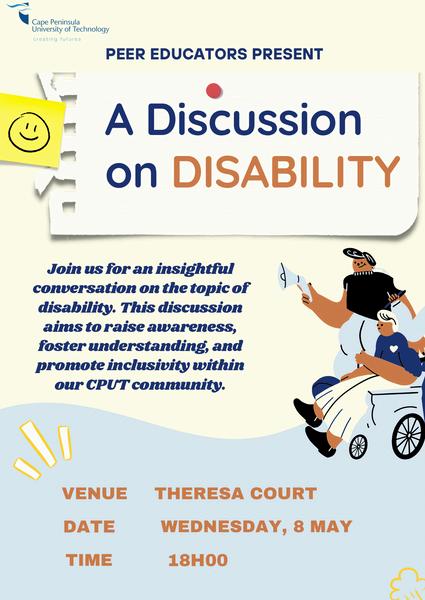
Throughout 2024, the HIV/AIDS Unit Peer educators led discussions in student residences, addressing critical topics such as HIV/AIDS, sexual reproductive health, STIs, gender-based violence (GBV), LGBTQI+ inclusion, and safe sex These sessions created safe spaces for students to engage openly, ask questions, and challenge harmful stigmas surrounding sexual health and well-being.
The discussions focused on breaking myths and misinformation, particularly about HIV/AIDS and STIs, while also emphasizing the importance of regular testing and prevention Peer educators encouraged students to make informed decisions about contraception, safe sex, and reproductive health, ensuring they had access to the right support services.
Beyond sexual health, the sessions also tackled social issues like consent, healthy relationships, and campus safety. Addressing GBV and LGBTQI+ rights helped students understand their role in creating a more inclusive and respectful environment
By opening up these conversations, the peer educators empowered students to take charge of their health and advocate for a safer, more supportive campus. Their efforts throughout the year contributed to greater awareness, reducing stigma, and fostering a culture of care and responsibility among students.
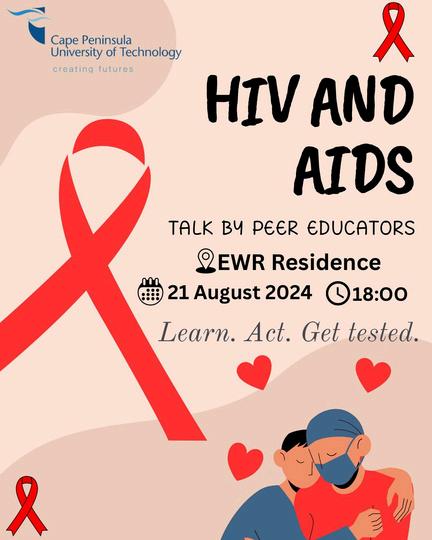
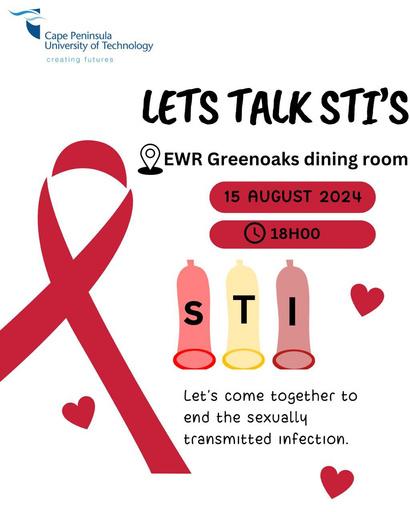

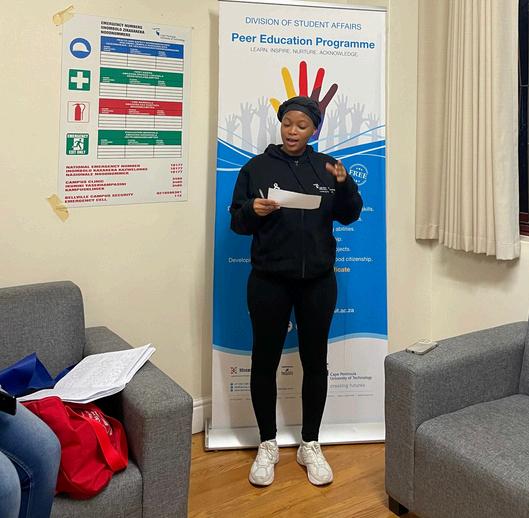
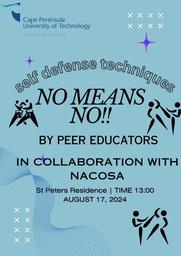
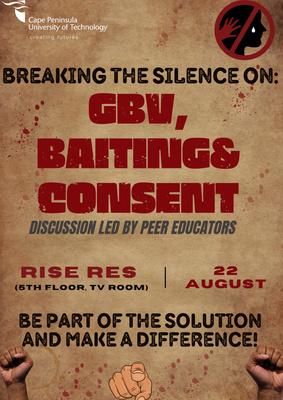
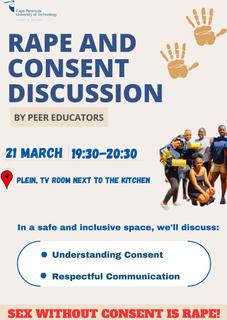
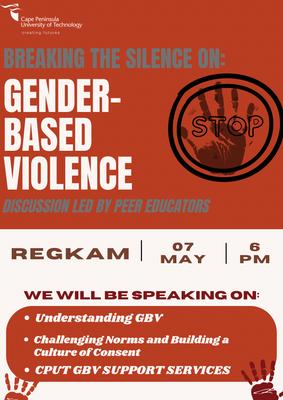
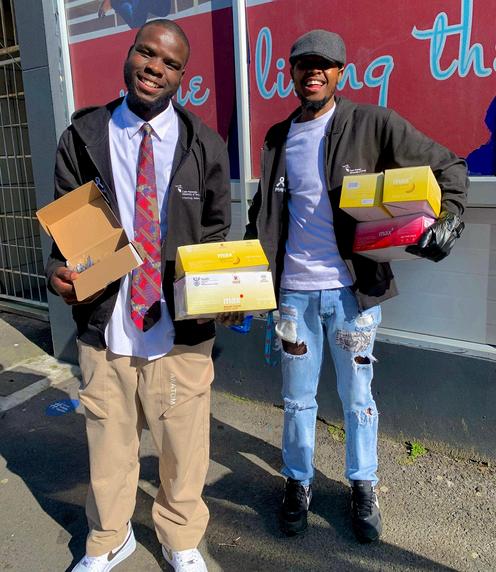



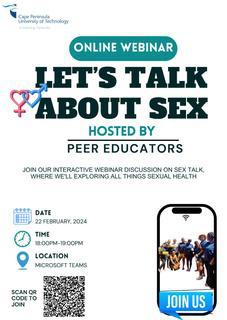




My name is Zimasa Dumbisa, and I'm from Worcester, a place where the struggles of the working class are evident, and the resilience of our people is inspiring. I'm currently studying for a Bachelor of Education, this institution that has given me the platform to engage with like-minded individuals, to challenge my own assumptions, and to grow as a critical thinker.
I'm passionate about making a positive impact in my community, and I believe that this passion is rooted in my experiences growing up in a society that is fraught with inequality, injustice, and oppression I've seen firsthand the effects of systemic racism, sexism, homophobia, and classism, and I've learned that these systems are not invincible. They can be challenged, dismantled, and replaced with more just and equitable alternatives.
Being a Peer Educator was a transformative experience that helped me develop essential skills, such as communication, leadership, and problem-solving As a Peer Educator, I learned how to effectively engage with my peers, facilitate discussions, and provide support. These skills have been invaluable in my role as an SRC member, where I've had to communicate with students, staff, and faculty members to address concerns, advocate for student interests, and challenge the university's policies and practices.
But being a Peer Educator was more than just developing skills; it was about being part of a community that is committed to social justice, critical thinking, and collective action. It was about recognizing that our individual experiences are connected to the broader social, economic, and political context, and that we have the power to shape our own destinies.
Taking on both roles has taught me the importance of time management, adaptability, and resilience.
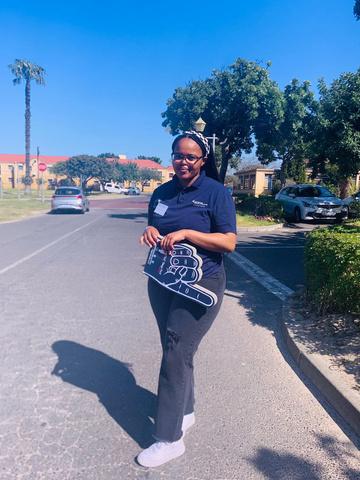

I’ve learned to prioritize tasks, manage conflicting deadlines, and navigate complex situation. Moreover, I've gained a deeper understanding of the importance of teamwork, collaboration, and empathy in leadership roles.
But more than that, I've learned that leadership is not about individual heroism; it's about collective action, shared responsibility, and a commitment to the greater good I've learned that our struggles are not unique, that we are part of a broader movement for social justice, and that our actions have the power to inspire, to educate, and to mobilize others.
As I look back on my journey, I'm reminded that our work is far from over. There are still many challenges to overcome, many obstacles to dismantle, and many injustices to confront. But I'm also reminded that we are not alone, that we are part of a vibrant, diverse, and powerful movement that is committed to creating a more just, equitable, and compassionate society

Tokologo Mashabela and Kefentse Junior Seabutla
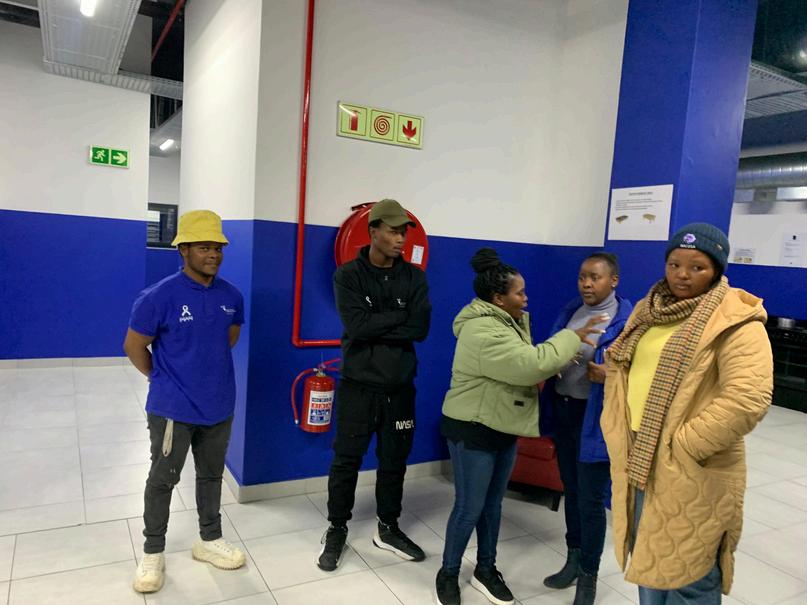
On the 20th and 21st of September 2024, Peer Educators; Tokologo Hlabirwa Mashabela and Kefentse Junior Seabutla, helped lead a self-defence training and mentorship program for students.
The program was organized in partnership with NACOSA, who kindly provided meals for the students Their support played a big role in making this initiative a success
This training was especially important because it was held in response to the shooting at UNIBEL and South Point earlier that week. It aimed to support students from both the University of the Western Cape (UWC) and the Cape Peninsula University of Technology (CPUT) by equipping them with self-defence skills and offering mentorship to boost their confidence and personal safety

Over the two days, more than 500 students took part in the sessions, bringing the total number of trained students to around 1,000. The training was wellorganized, smoothly run, and well-received by everyone who attended. With NACOSA’s support, the program not only provided valuable self-defence techniques but also helped students feel more empowered and prepared to protect themselves.
This initiative is part of our ongoing efforts to create a safer and more supportive environment for all students

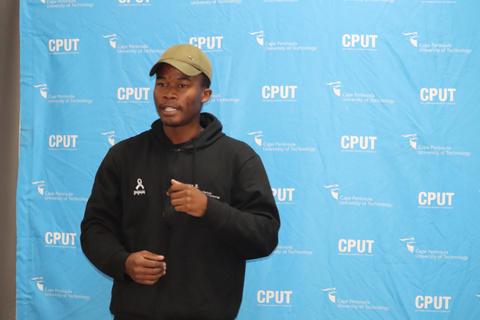
As a South African student at a prestigious university, I have seen and experienced abuse, misinformation, and victimization Sometimes, we unknowingly put ourselves at risk because we lack the right knowledge and training. That’s why I took part in organizing this self-defense program to empower students with skills, hope, and awareness. Many don’t realize when they are being abused or when they are harming others, so we partnered with NACOSA to provide crucial information. My colleague and I are committed to tackling issues like toxic masculinity, peer pressure, and risky behaviors, continuously finding ways to help students protect themselves; physically, emotionally, and financially, while striving to restore balance to our campus community.
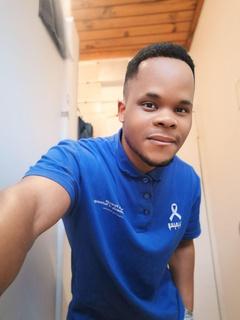
As a committed Peer educator, I believe this training has made a significant impact and will continue to benefit the student community. Through this initiative, we demonstrated our commitment to supporting fellow students and ensuring their wellbeing, making a significant impact on the student community which goes along with our slogan of making the change we wish to see.

Nokuthula Bianca Masangane

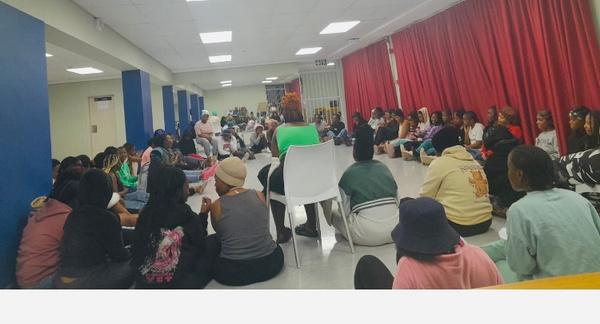
Bianca also helped lead a self-defense training and mentorship program for students living in District 6 residences, including Rise, City Edge, Hanover, Mountain House, and EWR.
Here’s what she had to say about her experience:
The NACOSA GBV Training not only allowed a space for young women in residences to better understand how to approach endangering situations by using their self defence mechanisms as well as mind techniques to defend themselves against dangerous situations it also provided mental and emotional support. From the coaching, they approach the GBV as a sensitive as it actually is also having counselors on standby for both male and female sessions. Overall students left the experience with life-long skills of how to approach volatile situations, a meal for each sessions as well as basic incentives to furthermore showcase how much of an outreach program this was.


